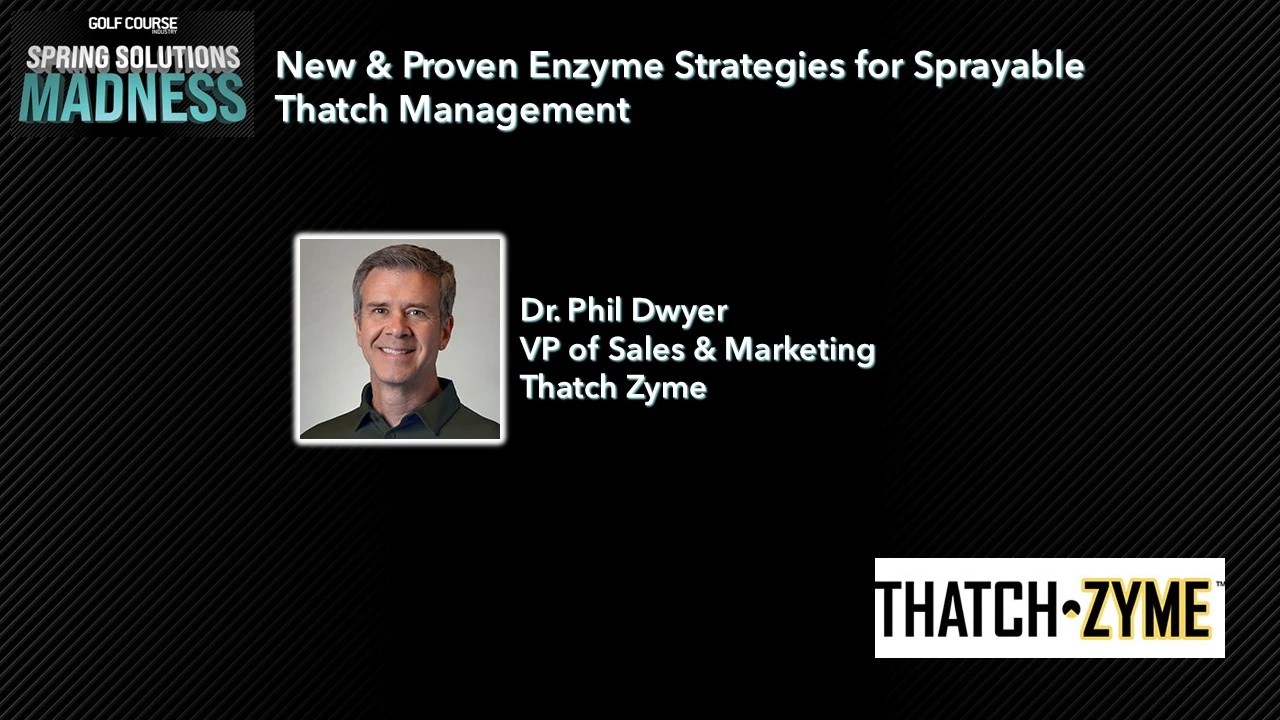The political atmosphere in this country can be summed up in one word: polarized. Because of that, not much is getting accomplished in Washington – other than a lot of bickering, whining and obstructionist tactics. But hey, what do you expect from politicians anyway.
|
|
Despite all the divisiveness about almost every issue, there’s one topic that really isn’t on the radar screen inside the beltway: pesticide use. Environmental lobbies seemingly have abandoned efforts to restrict pesticide use at the federal level, and instead, are preferring to slowly – and effectively – chip away at the issue at the state and local levels. A few years ago, Allen James, the president of Responsible Industry for a Sound Environment, called these hard-to-win local fights “death by a thousand tiny cuts.”
Well, that bleeding continues, and the battle to retain the tools you need to do your jobs effectively should be top of mind for golf course superintendents, owners, managers and everyone else who makes a living in this wonderful business.
It’s clearly top of mind for pesticide suppliers and organizations such as RISE that support them. Recent trips to Cleary Chemical in Dayton, N.J., and a BASF media event in Washington, D.C., made it clear to me chemical companies are working quite hard to develop and provide the market tested, proven and effective pesticide products. They’re also working hard to retain the products you already use. For example, Rick Fletcher, director of product development for Cleary, says the company has had to spend a lot of time and money recently to defend the use of thiophanate-methyl, mancozeb and thiram.
However, I understand you might be thinking more about the increasing price of fuel, fertilizer and pesticides, as well as the expectations of golfers, than the efforts of various pesticide suppliers who are continually fighting for the right to make, sell and use the products that are vital to your job. You might have more pressing issues to deal with. But, you should know about these efforts and be thankful for them because there are plenty of environmental activists that want to severely restrict, or even ban, the use of pesticides in the United States. You should pay keen attention to the politics surrounding pesticide use in your area and state because it will directly impact your livelihood.
James and RISE say strict regulations in Europe and Canada are proliferating and activists are trying to establish similar regulations here in the States. One case – although not directly involving pesticides – was in Wisconsin in which a local government wanted to ban the use of certain fertilizers that contained phosphorus, which activists claim were deteriorating the water quality.
To hamper the momentum of environmental activists, you should work more closely with pesticide suppliers to help disseminate valuable, scientific evidence – and common sense – that supports pesticide use to help educate and inform legislators at every level of government – local, state and federal – because those who make the laws seem to lack this information, which counterbalances the emotion-based claims activists make. It seems the smaller the level of government, the more education and information is needed.
Lately, I haven’t talked to too many of you who seem to have a good pulse on pesticide legislation or that seem concerned about it. If you’re one who has or is, please drop me a line to let me know what’s going on in your region or state. If we can share your stories with your peers throughout the country, they might begin to understand how serious this situation is for the industry.
Politics is a dirty job, but someone has to do it. Fighting for pesticide manufacturing and use can be an unnoticeable and thankless job. So let your pesticide suppliers know it’s needed and you appreciate the work they do on your behalf.
Join the fight for the continued manufacturing and proper use of safe pesticides. Because if you don’t, you soon may have fewer tools in your tool box to help you manage the turfgrass on the golf courses you’re in charge of maintaining. And then what would you do? GCN
Get curated news on YOUR industry.
Enter your email to receive our newsletters.

Explore the May 2006 Issue
Check out more from this issue and find your next story to read.
Latest from Golf Course Industry
- USGA releases Water Conservation Playbook
- Vilamoura Golf courses awarded GEO Certified status
- GCSAA’s Health in Action 5K/2K reaches fundraising goal
- Landscapes Golf Management to participate in data analyzation initiative
- Reel Turf Techs: Carl Michael
- Atlanta Athletic Club approves funding for master plan
- Maximizing Cultural Practices and Agronomic Benefits with Minimal Surface Disruption
- Real Answers about Spray Nozzle Choices






